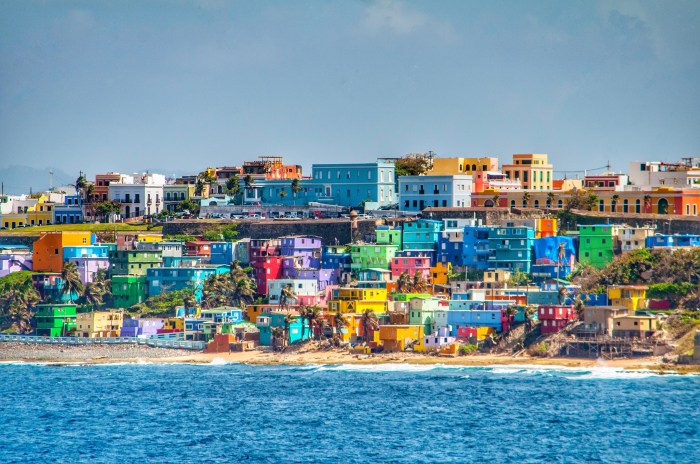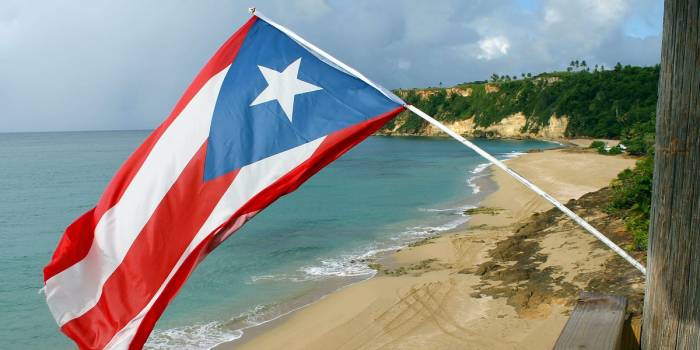Como estas yo porque manana vuelvo a puerto rico is a phrase that encapsulates the complexities of cultural identity and linguistic expression within Puerto Rican society. This phrase, which translates literally to “How am I because tomorrow I return to Puerto Rico,” carries deep cultural significance and offers insights into the unique ways in which Puerto Ricans navigate their sense of place and belonging.
Delving into the linguistic analysis of the phrase, we find a blend of Spanish and English, reflecting the island’s rich linguistic heritage. The phrase comprises several grammatical components, including the verb “estar” (to be), the pronoun “yo” (I), and the adverbial phrase “porque manana vuelvo a puerto rico” (because tomorrow I return to Puerto Rico).
The syntax follows a logical structure, with the subject (yo) preceding the verb (estar) and the adverbial phrase providing additional context.
Overview
The phrase “como estas yo porque manana vuelvo a puerto rico” translates to “how am I because tomorrow I return to Puerto Rico” in English. It is a common phrase used in Puerto Rican Spanish to express excitement or anticipation about returning home after being away.
Linguistic Analysis

The phrase is composed of the following components:
- “como estas” – how are you
- “yo” – I
- “porque” – because
- “manana” – tomorrow
- “vuelvo” – I return
- “a puerto rico” – to Puerto Rico
The phrase is structured as a question, but it is typically used as a statement to express excitement or anticipation.
Cultural Context

The phrase “como estas yo porque manana vuelvo a puerto rico” is a reflection of the strong sense of community and family that is prevalent in Puerto Rican culture. Puerto Ricans are proud of their heritage and their island, and they often express their love for their homeland through phrases like this one.
The phrase is also used to express a sense of relief or happiness after being away from home for a period of time. For many Puerto Ricans, returning home is a time to reconnect with family and friends, and to enjoy the familiar sights and sounds of their homeland.
Usage and Application: Como Estas Yo Porque Manana Vuelvo A Puerto Rico

The phrase “como estas yo porque manana vuelvo a puerto rico” can be used in a variety of contexts, including:
- When speaking to family or friends who live in Puerto Rico
- When talking about plans to return to Puerto Rico
- When expressing excitement or anticipation about returning home
It is important to note that the phrase is typically used in informal settings. It would not be appropriate to use the phrase in a formal setting, such as a business meeting.
Related Phrases and Expressions
There are a number of other related phrases and expressions that convey similar meanings to “como estas yo porque manana vuelvo a puerto rico.” These include:
- “Estoy muy emocionado de volver a puerto rico” – I am very excited to return to Puerto Rico
- “No puedo esperar a volver a casa” – I can’t wait to return home
- “Puerto rico es mi hogar” – Puerto Rico is my home
These phrases are all used to express a sense of excitement or anticipation about returning to Puerto Rico.
Questions and Answers
What is the significance of the phrase como estas yo porque manana vuelvo a puerto rico?
The phrase como estas yo porque manana vuelvo a puerto rico holds cultural significance as it reflects the complex relationship between Puerto Ricans and their homeland. It expresses a sense of longing, anticipation, and the desire to reconnect with one’s roots.
How does the phrase reflect Puerto Rican values and customs?
The phrase embodies the strong sense of family and community that is central to Puerto Rican culture. It conveys the importance of maintaining connections with loved ones and the desire to return home after being away.
In what contexts is the phrase commonly used?
Como estas yo porque manana vuelvo a puerto rico is often used in everyday conversation, particularly among Puerto Ricans living outside of Puerto Rico. It serves as a way to express their longing for their homeland and to stay connected to their cultural heritage.